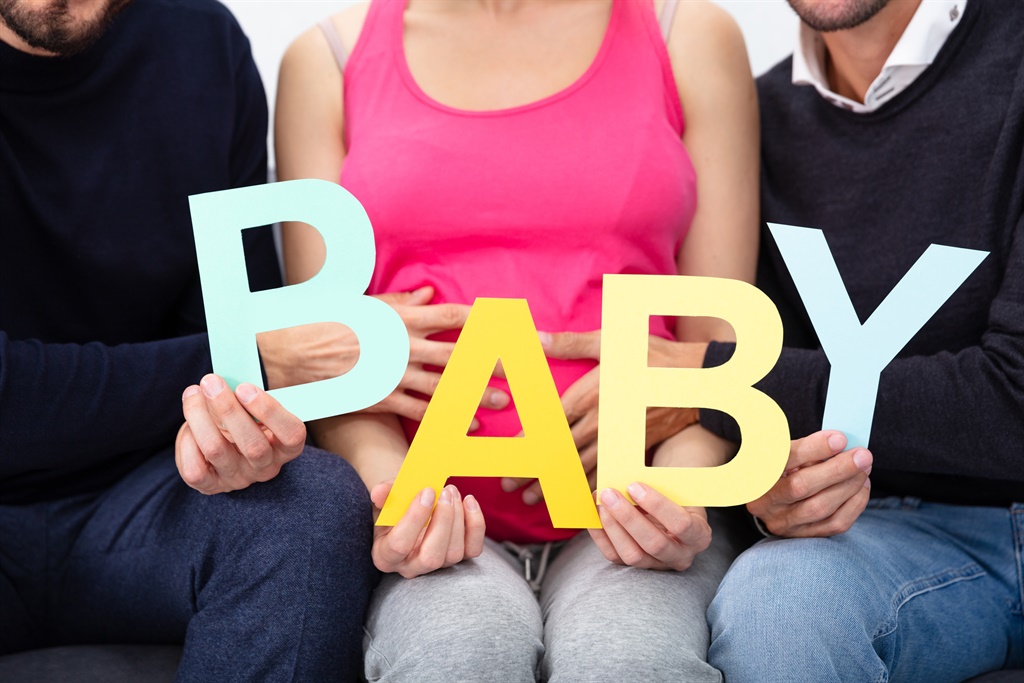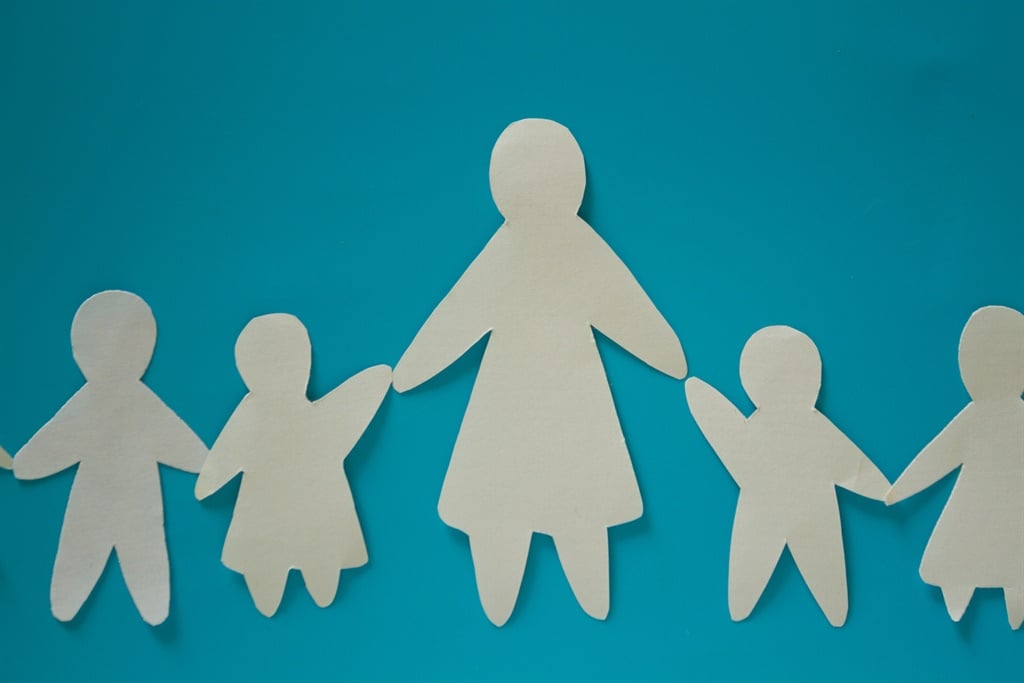
Reproductive freedom can include both the right to avoid procreation through means like abortion and the right to choose procreation through surrogacy and Assistive Reproductive Technology. Spotlight sat down with a mother who has been a surrogate on two occasions to discuss choice, the legalities and medical side of this process.
Karen Isaacs (49) is surrounded by children all day, every day.
The mother of two runs a preschool in Johannesburg from her home. For the last 20 years she has also taught children how to swim.
Thirteen years ago, Isaacs gave birth to a little girl who was not hers.
Isaacs, who was 37 at the time, decided to be a surrogate for a couple who could not have children.
In September last year she helped another couple. This time she gave birth to twins.
“I just decided that it was one of those things I could do to help these young ladies to have a family. My own pregnancies were very easy, so it was only my pleasure to help,” she explains.
The mother of the twins had 13 miscarriages before she opted for surrogacy.
“I just thought I was going to give someone a life.”
Children play a big role in Isaacs’ life. When Spotlight sits down with Isaacs at the school the pupils are playing a ball game outside.
Their presence is everywhere, from rainbow packs of stacked Post-It notes to colourful kid backpacks and lunch bags lying around.
Her first time
Isaacs recalls her first time as a surrogate.
“I was teaching another lady’s triplets. She had her babies through surrogacy and asked me if I would be interested in it because legally I was a good candidate. I was a single mother then,” Isaac notes.
The laws around surrogacy have changed quite substantially since then.
At the time her daughter was three years old and her son was six.
Back then, Isaacs says, she was given a “substantial” amount of money to do it.
“But 13 years ago the laws were very different and the couple paid me a deposit before I fell pregnant, then I got a monthly salary while I was pregnant and then I got a gift amount once the baby was born. It was legally done with different laws then.”
Since then the laws have changed, and it is now a criminal offence to be paid to be a surrogate.
“Our law only recognises altruistic surrogacy,” says surrogacy lawyer Robynne Friedman.
“Only small amounts are permitted to be reimbursed to the surrogate for expenses directly relating to the surrogacy journey and pregnancy.”
Isaacs’ second time as surrogate came when she was approached by one of her swimming mothers four years ago.
“She had heard I’d done it before. I was already 47 years old when she asked me, and to be honest I felt that I was too old to do it.”
Nevertheless, Isaacs went for the tests and was told she was fit enough.
According to Friedman, age is a factor because the risks of pregnancy-related health issues increase with age.
“We try and utilise the assistance of surrogates between 23 and 42 years. If they are older the medical practitioners will need to perform thorough health checks such as referral to a specialist physician.”
Family matters
Isaacs says that the two surrogacy experiences were very different in terms of the effect it had on her own family.
“With the first surrogacy, my daughter had to go for play therapy after the birth of the baby. She thought I would give her away too. She was young the first time ... Both my kids were fine with it this time around.”
Back then it was also hard for Isaacs’ parents to come to terms with it.
“Today surrogacy is more accepted in society. My parents were very supportive with the twins.”
Her children are teenagers now and they gave their blessing.
“With the twins’ pregnancy, both my children were old enough to understand. My daughter held my hand when I was sick. Both came with me to doctor visits – they were amazing.”
But being a surrogate is not a decision to be taken lightly.
“It is very important to make sure you know what you are doing,” says Isaacs.
“Don’t promise someone a baby and then you can’t give up the child. It’s different once you’re pregnant and you have to give it up. It was fine for me because I went into it knowing what I was doing – those babies were not mine.”
Isaacs recalls the first ultrasound of the twins and their mother’s reaction.
“Her reaction was amazing, she was very excited. She said ‘OMG they are there!’ Every single ultrasound was exciting for her [the mother].”
Surrogacy in SA
Surrogacy isn’t very common in South Africa and because of that, there aren’t specific statistics, says Dr Sulaiman Heylen, a specialist in reproductive surgery and president of the Southern African Society of Reproductive Medicine and Gynaecological Endoscopy.
Egg donation, however, isn’t as rare.
“Most women,” he says, “have a normal uterus, so they are healthy enough to carry a baby. You can make use of an egg donor or you can get any other form of help. It is rarely necessary to do surrogacy. We suggest surrogacy if there is a severe abnormality of the uterus,” Heylen explains.
Although some babies are created with the parents’ eggs or sperm, some babies are created using donations.
Tertia Albertyn, strategic director of Nurture, an egg donation agency, says egg donation has grown over the years as more prospective parents realise that this is a wonderful, successful way of having a family, and potential egg donors get to hear about the safe and very rewarding process of donating eggs.
Albertyn says they have seen an increase in international fertility patients coming to South Africa for egg donation treatment.
“South Africa has world class medical facilities, some of the best fertility specialists in the world, and a very favourable exchange rate.”
What does it cost?
According to Albertyn, costs vary from clinic to clinic.
“In general, Cape Town is cheaper than Gauteng, and Pretoria is cheaper than Sandton. The total cost of an egg donor IVF (In vitro fertilisation) is between R65 000 and R110 000. Total cost of using frozen donor eggs is between R67 000 and R90 000.”
She explains this treatment is not covered by medical aid.
“Medical aids do pay for some diagnostic tests, but not for the IVF. Egg donor agencies don’t have payment plans unfortunately.”
So, what are the options for those who can’t afford the costs?
In the public health sector three centres offering affordable fertility treatment operate from the Steve Biko Academic Hospital in Pretoria and the Tygerberg and Groote Schuur hospitals in Cape Town.
According to TimesLive, these centres have managed to cut the costs of assisted reproductive treatment in South Africa by changing some of the treatment processes and in some cases lowering the doses of medication.
Laticia Pienaar, spokesperson at Tygerberg Hospital, says at the hospital’s fertility clinic they offer all forms of assisted reproductive technologies, including egg donation and surrogacy.
“The clinic also offers all forms of assisted reproductive technologies such as IVF and ICSI (Intracytoplasmic Sperm Injection). The average cost of IVF or ICSI at the clinic is about R12 000,” Pienaar says.
“The patients buy their own hormonal stimulation medication, egg retrieval needles, the embryos culture and transfer media, and catheters. Our services are fundamentally developed to serve the state patients who have limited resources. Medical aids do not pay for fertility treatments in general.”
Reproductive freedom
Reproductive health rights are often associated with access to abortion services and contraceptives which are both means, as some studies show, by which to avoid procreation.
Surrogacy flips this coin and places the focus on the other side of reproductive freedom – the choice of a person to procreate without sexual intercourse through the vast and growing forms of assistive reproductive technology.
This is especially important for people with limited biological options to have children themselves and who choose to use another woman to carry their baby.
But surrogacy is still a curious and contested issue for many.
When people ask Isaacs why she would take on such a huge responsibility, she often tells people she doesn’t really know the answer but it feels right to do something if you’re in a position to help another.
“I tell them I don’t know what the answer is, I did it because I could do it. I was comfortable doing it but I don’t think every woman can do it,” she says.
“I would do it again but not when I’m 50. I’m turning 50 this year. From an age perspective I wouldn’t want to do it again.”
The legal process
Laws around surrogacy have changed.
“Back in the day with the past laws, a surrogate had 62 days to give up the baby,” says Isaacs.
“The current law says parents of a baby born through a surrogacy arrangement, have the right to say what will happen to the baby the day the egg is inserted into the surrogate mom.
“I agree with the current law. The baby was theirs from the beginning.”
During her pregnancy, she only saw the parents of the babies at doctors’ visits, or if she needed something.
She says with the first surrogacy, she went to see a lawyer but the second surrogacy she had to sign “three books” – very heavy legal documents.
Friedman explains after a surrogate volunteers her assistance she undergoes thorough medical and psychological and criminal screening checks.
“The intended parents also undergo the same evaluations to confirm their suitability as parents or a parent.
“Once this is complete there is an in-depth legal process which must be followed. An application is brought to the high court to confirm their surrogate motherhood agreement and supporting documents are provided to the court as evidence of full compliance with the Children’s Act. Only once the High Court confirms the agreement and a High Court order is issued, may the fertility specialists transfer the embryos into the uterus of the surrogate mother.”
The legal process is completed before the in vitro fertilisation is done.
“The legal process of the twins was different - the minute they inserted the eggs into the surrogate, the baby is not yours. Decisions made around the pregnancy is not up to you, it’s up to the parents of the babies through a surrogacy arrangement,” Isaacs explains.
“Whether or not you’re okay with that, you have to sign for it. So, it’s not for you to say that you want to give up the baby if there is something wrong with it. It’s for the maternal parents to decide what they want to do. Thankfully the babies (twins) were hundred percent okay.”
On whether a possible miscarriage is also discussed, Isaacs says: “The doctor gives it to you on how many times he is going to allow you to try. I agreed to try three times. Everything is in the contract - if there’s a miscarriage – it’s all in the contract.”
The South African Registry for Assisted Reproductive Technology 2015 report provides a collection of data from 16 assisted reproductive technology – when medical procedures such as in vitro fertilisation (IVF), intracytoplasmic sperm injection (ICSI) and oocyte (egg) donation.
The 2015 report shows that a total of 5 681 aspirations were performed at the centres in the preceding year.
Aspirations refer to the removal of eggs from the ovary before they are sent for fertilisation in the laboratory. From these aspirations, there were 4 255 fresh embryo transfers and 2 269 frozen embryo transfers. Embryo transfer is the last step of assisted reproduction, where embryos are placed into the uterus of a female with the intent to create a pregnancy.
The report also show that there were 2193 pregnancies from the total procedures done. There were 867 deliveries. Deliveries refer to women giving birth, irrespective of whether they are live births or stillbirths.
The different treatments
In vitro fertilisation (IVF) and intracytoplasmic sperm injection (ICSI) are the two most common fertility treatments.
For IVF and ICSI, the difference is how the sperm fertilises the egg.
According to USC Fertility, in IVF, the egg and sperm (of which there are multiple) are left in a petri dish to fertilise on their own.
In ICSI, one sperm is directly injected into the egg. ICSI will likely be better for you if you are affected by sperm-related infertility.
According to Medfem Fertility Clinic, in oocyte (egg) donation, embryos are conceived using eggs obtained from a young egg donor (not the intended mom’s) and sperm from the intended dad’s (which is most commonly husband of the mom) genetic contribution.
For a better success rate of fertility, the donor undergoes ovarian stimulation with injectable medications and multiple eggs are produced. Simultaneously, the intended mother’s uterus is prepared for implantation.
For more information:
If you are interested in fertility treatments you can make a booking at Tygerberg Hospital’s Fertility Clinic 021 938 5487 or alternatively send an email (preferably) to tygerberg.fc@gmail.com.
If you are in Johannesburg, you can contact the Steve Biko Academic Hospital’s Reproductive and Endocrine Unit at Zozo.Nene@up.ac.za or Krushmee.Singh@gauteng.gov.za or 012 354 2540/ 5337.
*This article was produced by Spotlight – health journalism in the public interest. Like what you reading? Sign up for our newsletter and stay informed.




 Publications
Publications
 Partners
Partners











